This will be the first international conference hosted at Kilimanjaro Christian Medical Center (KCMC) in Moshi, Tanzania, a prominent cancer treatment center that has previously provided chemotherapy and is preparing to acquire its first radiation linear accelerator (linac) in April 2025. The conference is being organized in collaboration with healthcare providers from KCMC, Mayo Clinic, and the University of Minnesota. Spanning three days, the event will feature a series of sessions on key oncology topics, including: 1) Pillars of Oncology, 2) Management of Breast and Gynecological Malignancies, 3) Adult and Pediatric Hematologic Malignancies, 4) Pediatric Malignancies, 5) Skin Cancer, Sarcoma, Head & Neck Cancers, and Oncology Care Administration, and 6) Genitourinary Malignancies and Gastrointestinal Tumors. In addition to the conference sessions, there will be hands-on clinical training to facilitate real-time learning. To ensure the success of this workshop, organizers are seeking experts in these specialized areas.
As a radiation oncology nurse practitioner with seven years of experience, I have been invited to participate in this workshop. Specifically, I will deliver lectures on radiation toxicities and their management, aiming to improve patient outcomes and enhance the care of cancer patients undergoing radiation therapy. This is particularly significant as KCMC’s oncology team will be learning to operate their new linac at this time. I will also participate in clinical sessions, providing real-time education and support to the healthcare providers.
Since 2020, I have been deeply involved in global health initiatives. Along with my colleagues, I co-founded the Global Bridges Oncology Nursing Seminar, through which we have organized monthly virtual lectures since January 2021, conducted an oncology workshop in Nairobi, facilitated an international cancer conference in Kumasi, and hosted a two-week oncology observorship at our clinic in Minnesota.
Research indicates that cancer remains one of the leading causes of morbidity and mortality worldwide, with disproportionately high rates in low-income countries. In Tanzania, where resources such as cancer screening and diagnostics are limited, patients often present at advanced stages of the disease, resulting in significantly higher morbidity. Cancer treatment typically involves a combination of chemotherapy and radiation therapy, with more than 50% of cancer patients requiring radiation as part of their treatment regimen.
KCMC is a major public cancer treatment center in Tanzania that has historically provided chemotherapy. In a major advancement, KCMC will receive its first radiation linear accelerator (linac) in April 2025, which marks a pivotal moment for improving patient outcomes by expanding access to radiation therapy. This will make them the 2nd public hospital with radiation in Tanzania. Previously, patients in need of radiation would have to travel several hours to access treatment, and many would forgo radiation due to the financial and logistical burdens associated with long-distance travel.
I am a strong advocate for the "train the trainer" model, which focuses on empowering local healthcare providers through education and knowledge dissemination. I believe this approach can make a profound impact on cancer care by fostering a cycle of continuous learning and improving the standard of care. This conference, for example, presents a valuable opportunity to educate healthcare professionals who will soon be using the new linac, particularly in the management of radiation toxicities. By equipping providers with the knowledge to manage these side effects effectively, we can ensure they are better prepared to provide high-quality care and improve patient outcomes. This knowledge can then be integrated into their clinical practice and provider orientation, further amplifying its impact and contributing to long-term improvements in cancer care
The proposed conference will feature a comprehensive array of cancer types and management strategies, presented by leading experts in the field. This exchange of knowledge has the potential to enhance early detection strategies and improve treatment outcomes, particularly through evidence-based recommendations for cancer care and radiation therapy. Furthermore, the conference will address the management of toxicities associated with both radiation and chemotherapy, aiming to optimize patient outcomes and promote adherence to treatment protocols.
In addition to advancing clinical knowledge, this workshop will facilitate stronger collaboration with healthcare providers at Kilimanjaro Christian Medical Center (KCMC). While some of these providers are already engaged in our monthly virtual lectures, hosting this event at their facility offers an opportunity to deepen our relationship and build a more sustained partnership. We aim to collaboratively develop lecture topics and explore the possibility of hosting future observers at our clinic, thereby further enhancing the oncology skills of KCMC's providers. Ultimately, our shared goal is to improve cancer care and patient outcomes on a global scale.
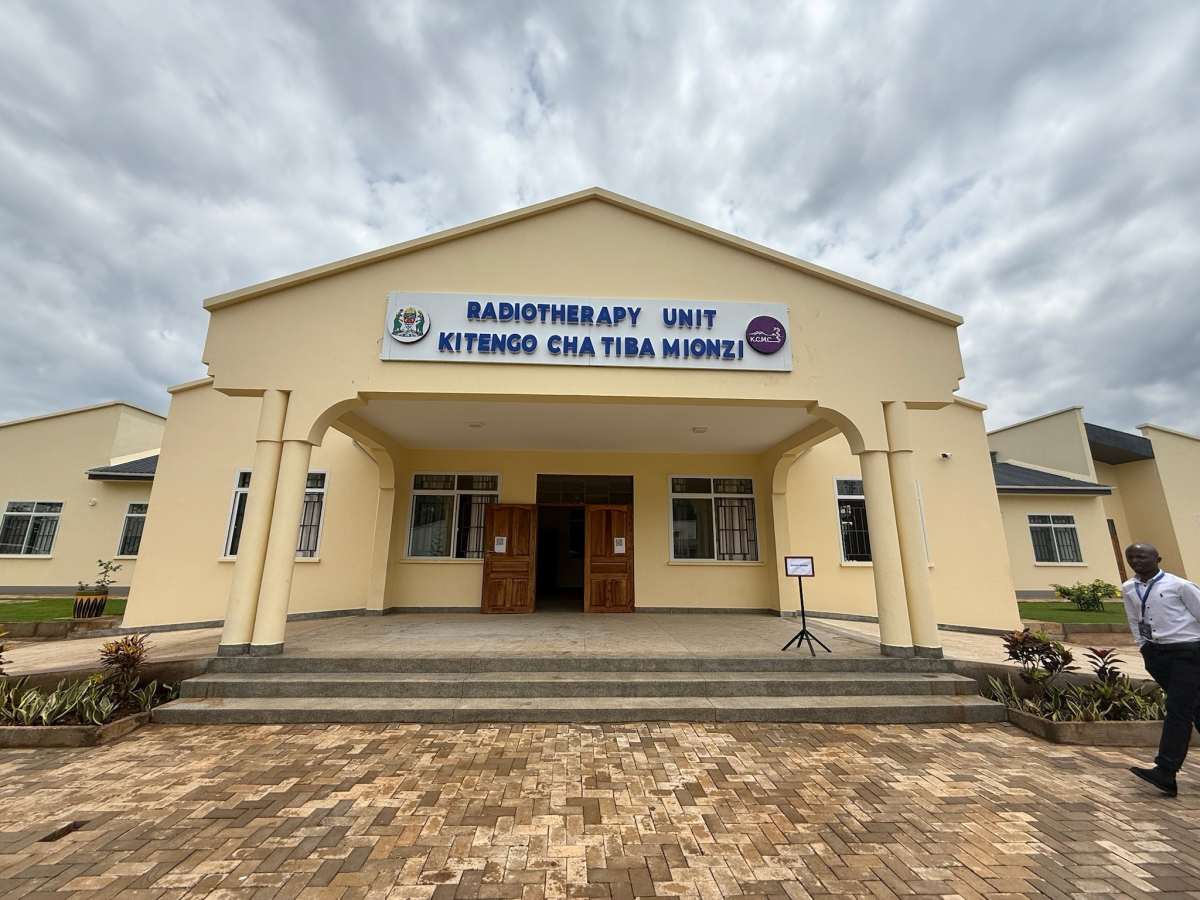
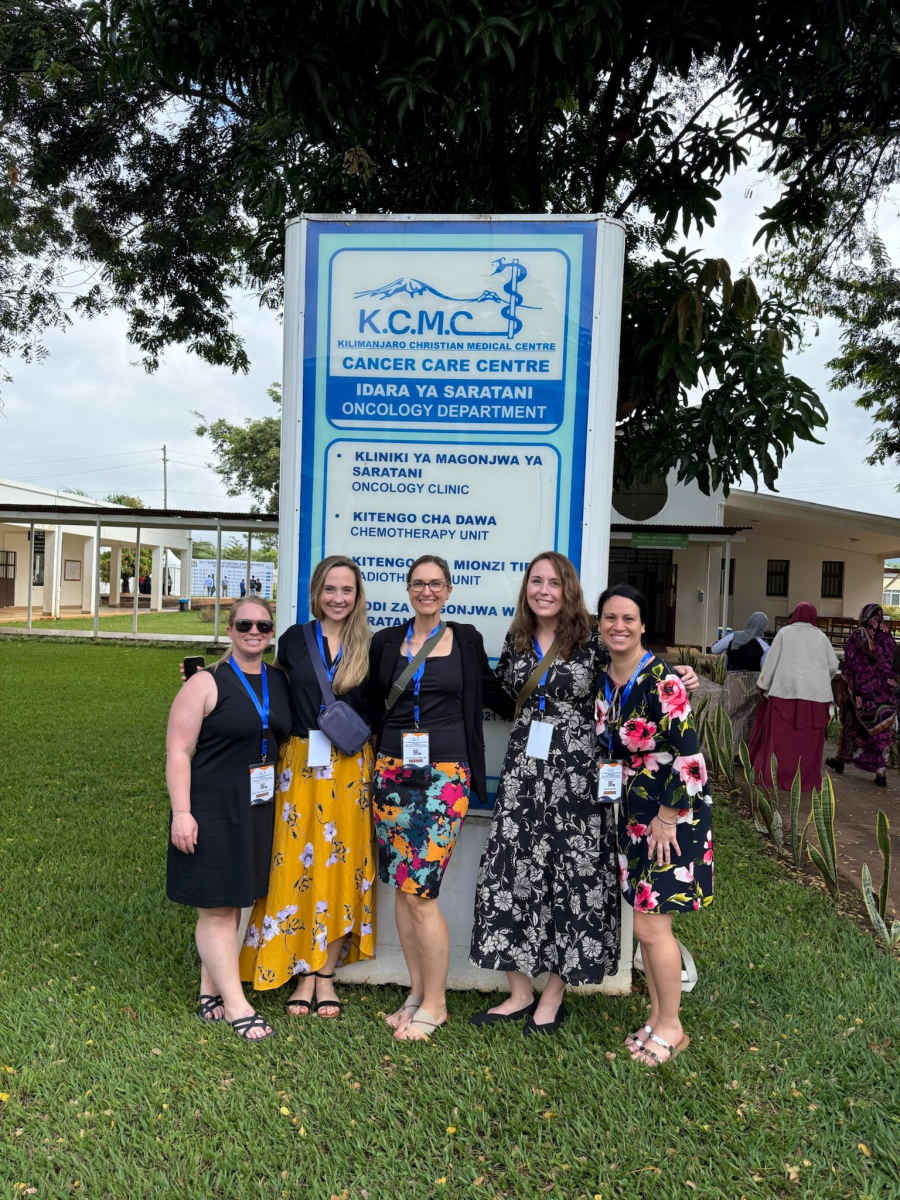
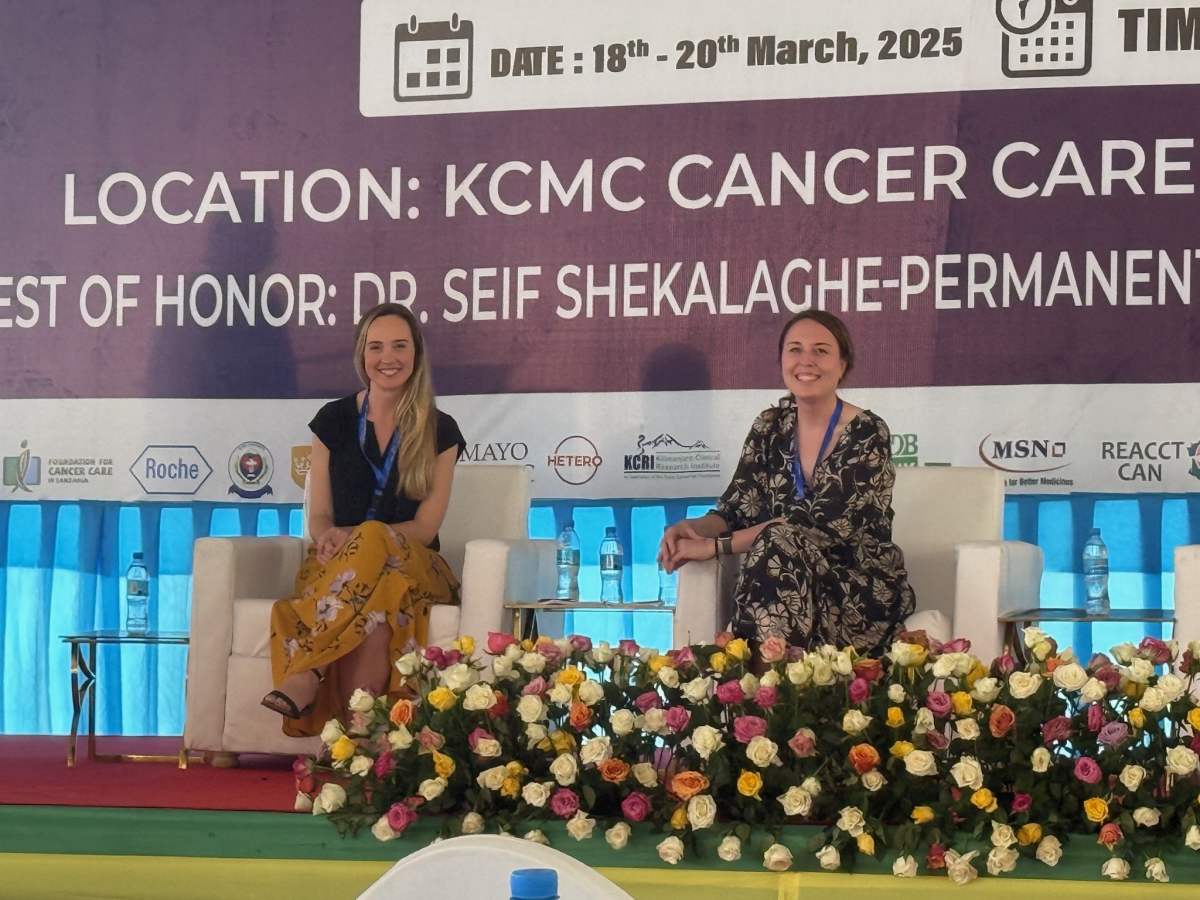
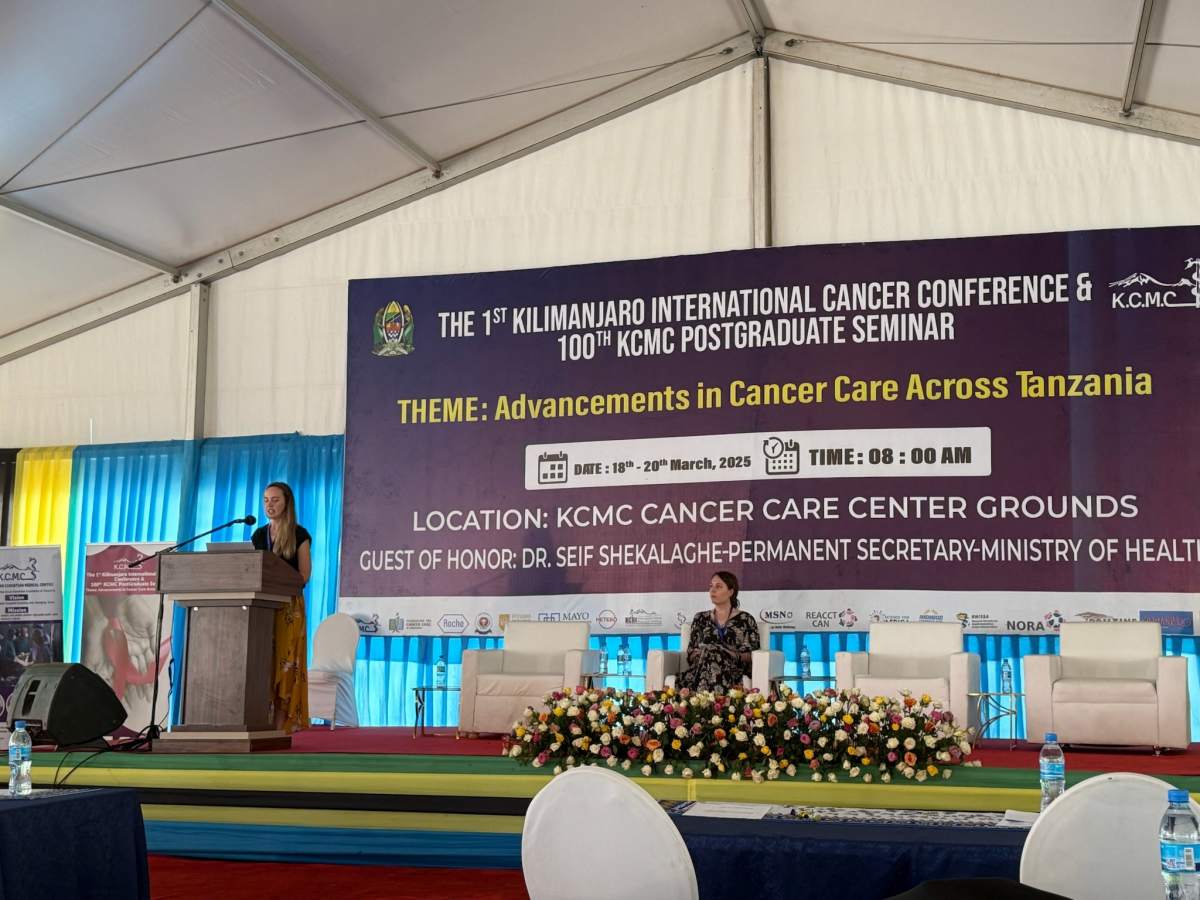

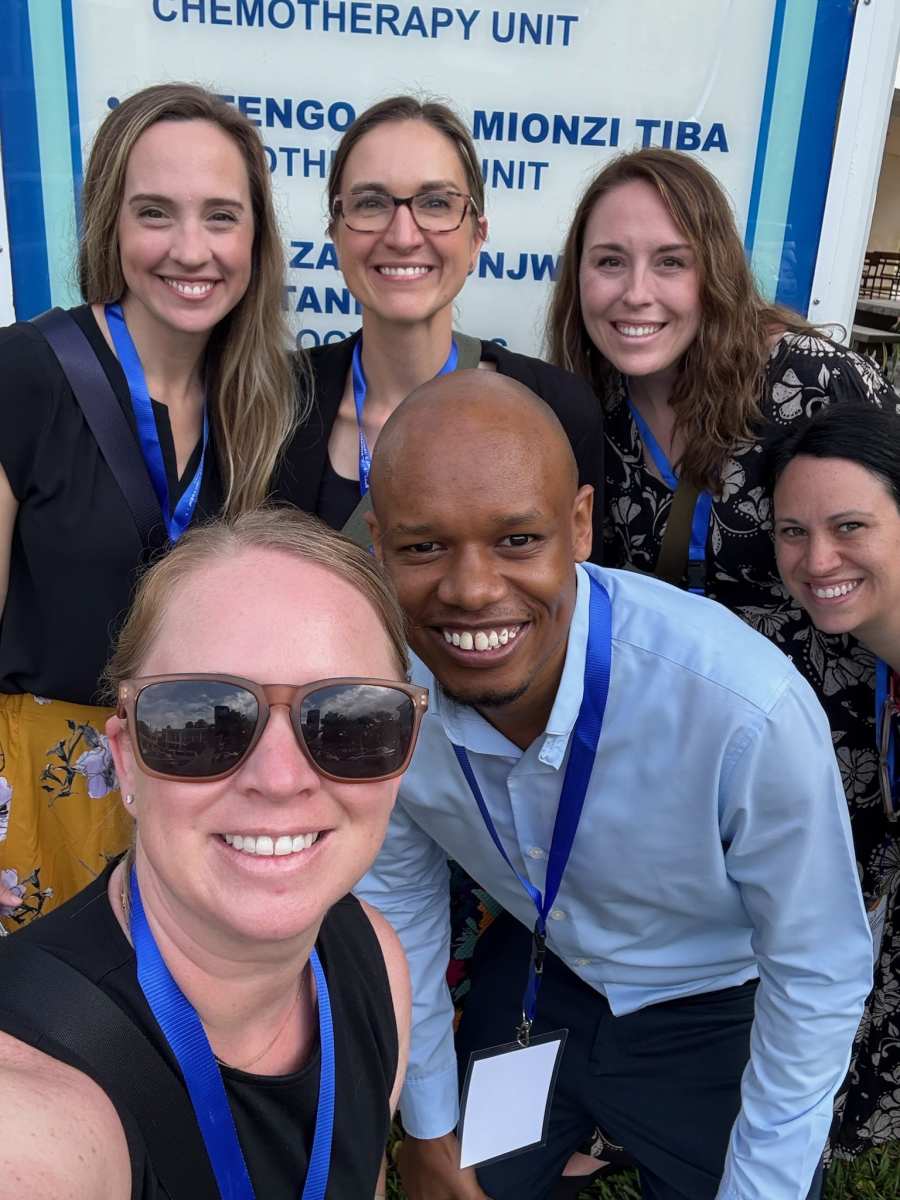






In March 2025, I had the distinct privilege of attending and contributing to the inaugural Kilimanjaro International Cancer Care Conference, held at the Kilimanjaro Christian Medical Center (KCMC) in Tanzania. This experience was particularly meaningful to me as a professional in Radiation Oncology, given that KCMC is about to introduce their first true beam radiation equipment this spring. Being able to participate in this milestone was both an honor and an incredibly rewarding opportunity to share my knowledge and expertise with a hospital and community that will soon begin treating radiation oncology patients for the first time.
During the conference, I was fortunate enough to deliver two lectures on topics that are vital to the successful management of cancer patients undergoing radiation treatment. The first lecture focused on Radiation Dermatitis Management, and the second addressed the Management of Common Radiation Side Effects. Both lectures were well received, and I was thrilled to see a robust and engaging discussion following each session. The exchange of ideas and strategies provided valuable insights, and I was impressed by the dedication and enthusiasm of the KCMC staff as they work to build a comprehensive radiation oncology service.
The conversations and collaboration that followed these sessions were immensely fulfilling. It was clear that the team at KCMC is eager to implement effective care practices that will improve patient outcomes, and I am confident that the information shared during my lectures will play a pivotal role in shaping the future of radiation care at the hospital. With the upcoming installation of the radiation equipment, these discussions could not have come at a more crucial time.
I am forever grateful to the Doximity Foundation for their generous support in providing airline transportation funding, which made my participation in this event possible. Their contribution allowed me to contribute to a cause that is incredibly close to my heart—helping to improve cancer care and patient outcomes in Tanzania. The opportunity to be part of this inaugural conference was an enriching experience, and I look forward to continuing to collaborate with the amazing healthcare professionals in Tanzania to enhance cancer care and support patients on their journeys to recovery.
In closing, this trip was a profound reminder of the global impact that sharing expertise can have in advancing medical care. I left Tanzania feeling deeply fulfilled and hopeful for the future of cancer treatment in the region.